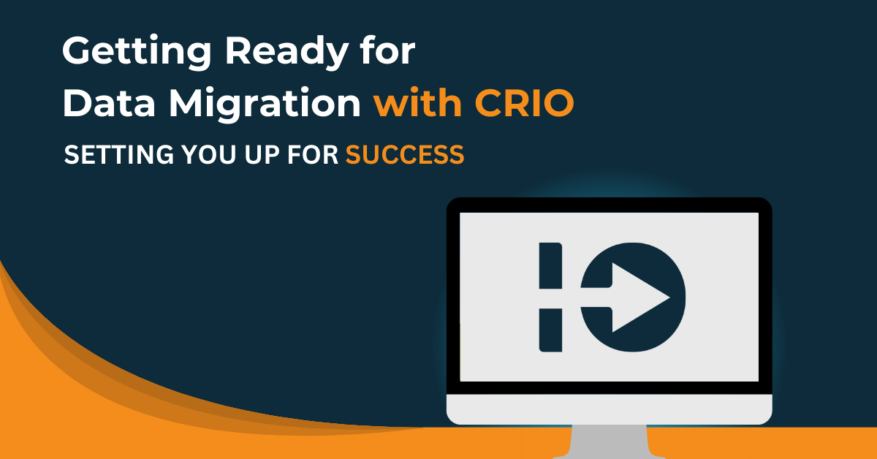Site Spotlight: CEO of ClinCloud Offers Insight On Running COVID-19 Trials

COVID-19 trials have quickly become the top trafficked listings. According to WCG Insights, COVID trial listings represent 15.1% of total visits in the last 6 months and has led to a decrease in interest in trials for other conditions.
Given the fluid nature of the pandemic and the increasing need for COVID treatments and vaccines, more and more research sites will likely undertake COVID trials. To learn about some of the studies underway and to understand how running one can impact site operations, Clinical Research IO met with Jessica Branning, CEO and Founder of ClinCloud. ClinCloud is a multi-therapeutic research site in Maitland, Florida and has two ongoing COVID trials.
CRIO: How did your site get involved in these COVID trials?
Ms. Branning: We are currently running two trials and are scheduled to start three more quickly. Sponsors are very interested in starting COVID19 treatment and vaccine trials in areas that have higher numbers of COVID cases. As Florida is currently a hot zone, trial participation may mitigate the number of people infected. We found our first COVID trial through mutual connections, and after site activation, we were able to win additional trials from the same sponsor. Other sponsors then reached out to our site due to our known experience in the indication, as well as our experience with e-Source and e-Regulatory experience. Many sponsors are interested in collaborating with sites that have this experience because it truly allows for trials to be monitored more closely and allows everyone to be protected from the virus.
CRIO: What kind of studies are they?
Ms. Branning: The two trials already underway are both phase two studies that include both placebo and treatment arms. While the studies include a placebo, we have found that the ratio of patients receiving treatment to those receiving placebo is much better than trials for other indications. The treatment in these two trials are infusion based. One of the studies that we will be starting soon is a diagnostic trial that compares rapid tests.
CRIO: How long do the studies last?
Ms. Branning: One study lasts 30 days and the other is up to 7 months, which includes a follow-up phase to monitor safety.
CRIO: Has your site modified operations to accommodate the COVID trials?
Ms. Branning: We opened another location to run our COVID trials as our current site usually works with a vulnerable patient population. With this addition, we have hired a dedicated COVID19 team that will be solely responsible for the conduct of our COVID19 trials.
CRIO: What is unique about COVID trials when compared to those for other indications?
Ms. Branning: Our site elected to participate in outpatient trials for patients with mild to moderate symptoms that do not require inpatient hospitalization. The structure of these trials is very similar to treatment trials for other indications. We collect demographics, medical history, conmeds, perform safety assessments before and after treatment and conduct follow up visits.
What is unique about COVID trials is the timeline for study start up. Usually it takes over a month to initiate a new trial. The startup period for COVID trials has been 1-2 weeks.
CRIO: Our site has been tracking COVID trials and we noticed that most require a positive COVID test via RT-PCR. Is your site conducting COVID tests on site?
Ms. Branning: Yes. Our site currently performs SARS-CoV-2 COVID rapid testing, which takes 45 minutes for results. If patients are positive, they may participate in one of our trials and remain at the clinic to potentially receive treatment.
CRIO: Are there any other notable inclusion and exclusion criteria?
Ms. Branning: Besides having a positive COVID test, the inclusion criteria is relatively standard – in order to participate all medical conditions and conmeds need to be stable. For the exclusion criteria, there are only two notable criteria: 1) Patients cannot ever be hospitalized previously for COVID and 2) Patients cannot be on any antiviral medications.
CRIO: Are you finding that the COVID trials are high enrolling?
Ms. Branning: So far, the trials have been very popular. Many people are interested in participating because we have rapid testing at our facility, and they can know their COVID status. We have also been working with our local police and fire departments to identify patients for our treatment trials.
CRIO: Do you foresee any challenges running COVID trials?
Ms. Branning: I am not anticipating any real challenges. We have opened a separate COVID-19 treatment trial center in a stand-alone building to keep potential COVID trial participants separate from our more vulnerable patient populations. Additionally, we have implemented standard operating procedures that keep both site staff and patients safe.
For example, we ask that all patients remain in their cars and call when they arrive. After we receive a call, we push them an email that gives them access to the electronic informed consent. The informed consent process is conducted over the phone and patients eSign the forms. Once the eConsent process is done, a swab is performed. Forty-five minutes later, the patients get their results and we go from there. Everything is done virtually until bloodwork, other assessments (e.g., height/weight) and dosing needs to be performed.
CRIO: Have sponsors incorporated virtual/remote assessments?
Ms. Branning: In addition to eConsenting, we have been using SnapClinical, a secure telemedicine portal, where we conduct virtual visits. We then enter data into CRIO.
CRIO: How has CRIO helped your site with the COVID trials?
Ms. Branning: We like the CRIO system because it is so easy to capture data in real time. We manipulated the study section and created a ‘pre-screen’ COVID study that can be used during patient recruitment calls. During calls, we review COVID specific symptoms, review medications, review medical history and schedule patients to come in for a nasal swab and capture all this data in CRIO. Once we have the results of their COVID tests, we select yes or no and can move them directly into a study. With CRIO, data collection is a seamless process from screening to enrollment. Collecting data electronically and in real time increases site efficiency and reduces the amount of time that patients must spend on site.
CRIO: Do you have advice for other sites that are interested in getting involved in COVID trials/are just starting up their COVID trials?
Ms. Branning: The pandemic has really opened possibilities in the clinical research world and also represents an opportunity to dive deeper into available technologies. Do not be afraid of technologies that are being put into play. They are there to keep everybody safe, and increase site efficiency, so be open to using them.




